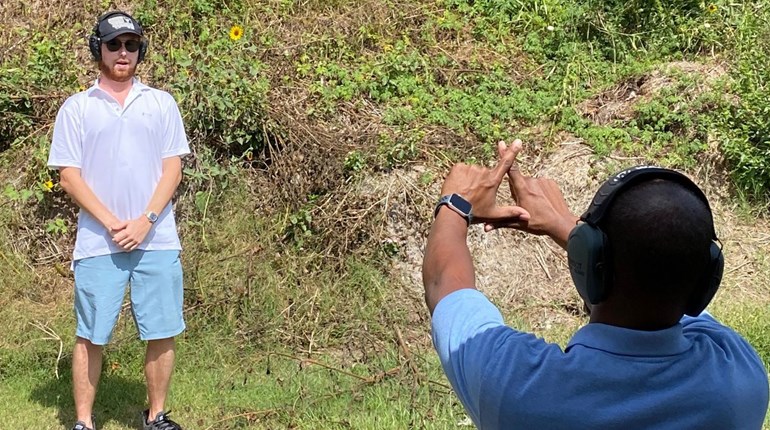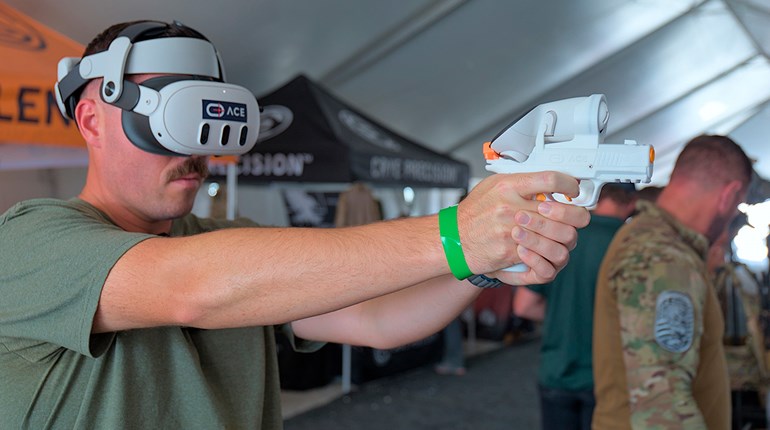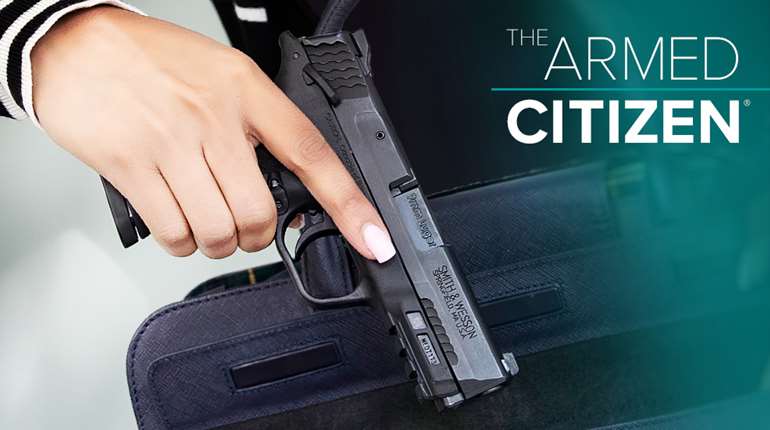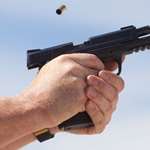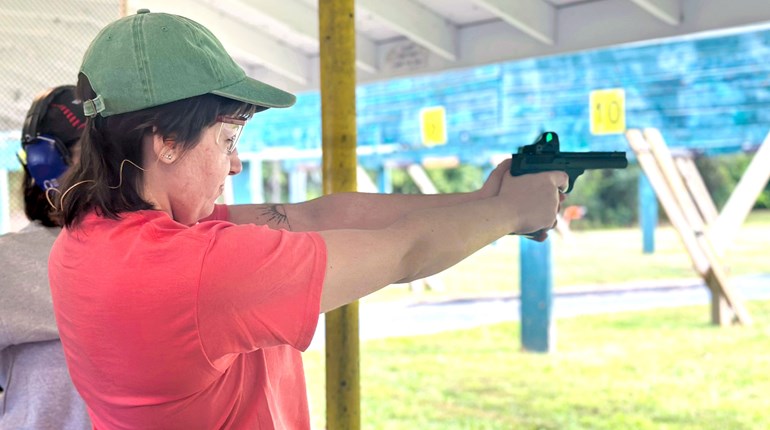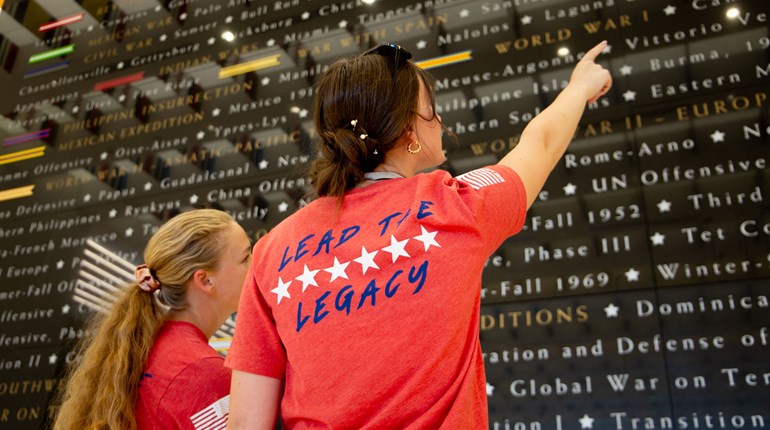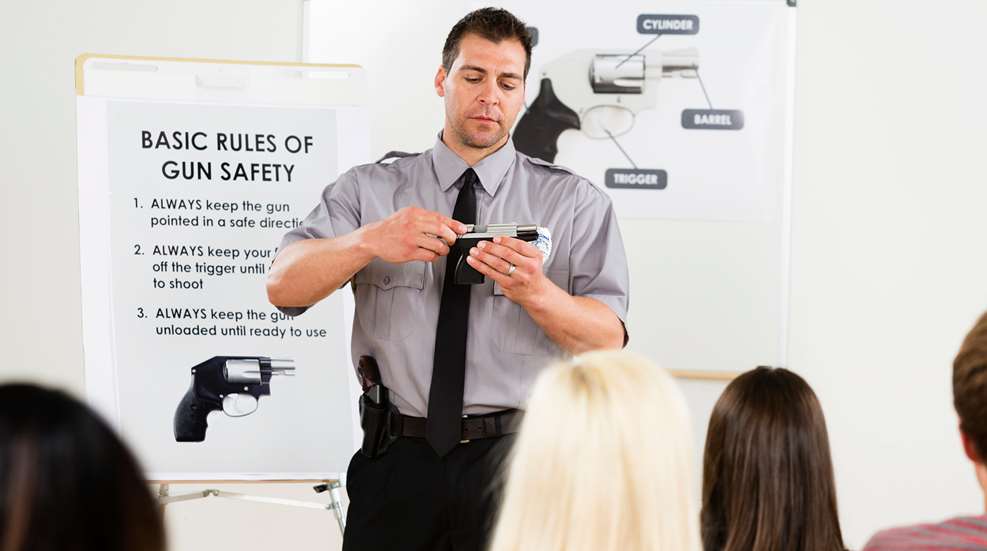
One of the first steps to effectively defending yourself is deciding to get some training to go along with your new firearm. This is an excellent step in your journey to becoming a capable and responsible gun owner—one who is able to save herself when nobody else can.
In order to make sure that your investment of time and money into a class worthwhile, it is important to make sure you’re getting the right training for you. After all, you don’t want to waste your hard-earned resources on a class that doesn’t satisfy your goals. But how can you tell if you’re choosing a good class for yourself?
To find a class that interests you, read the outline of the class content. Choosing a course that follows a set and recognized curriculum, such as NRA Basic Pistol, has the advantage of using material that has been developed with direct input from a number of individuals. You’ll also know that you will get consistent content regardless of the instructor, though they may have different teaching styles.
Read the Fine Print
Of course, not everything you’ll want to learn has an established curriculum, in which case you’ll need to read the class description closely to see if it will provide enough detail into the subjects in which you’re most interested. If there is a laundry list of topics to be covered in a short period of time, consider whether you’ll get to dig into them enough to benefit you. If there isn’t much to the description, then it might be time to ask for more details to see if it matches up with what you want.
Skills Test
You should also determine if the class is geared toward the skills you want to learn, and if they'll be applicable to the environment in which you want to use them. The environmental factor is especially important if you’re interested in learning civilian defensive skills or competition-specific skills. While there is certainly crossover in fundamental techniques, the context in which they are taught can affect whether you learn them in the way that is most useful to your ultimate goals. Your instructor should be aware of when and where you might use the skills you are learning, and be able to tell you how they fit into those areas of your life. If the class is geared toward a particular setting, you should also expect to learn the rules or laws that are applicable, whether they’re rules of the game, legal aspects applicable to using deadly force or general gun safety rules applied to those situations.
Complicated and dynamic training can and does occur without needing to bend or break the three fundamental rules. Insist on safe training. Your life may depend on it.
Once you've identified classes in which you’re interested, remember that good training is safe training. The application of safety rules can change from class to class as a result of the type of material that is being taught, but the basics always remain the same:
- Always point the gun in a safe direction
- Always keep your finger off the trigger until you're ready to shoot
- Always keep the gun unloaded until you’re prepared to fire
You might hear an argument for “big boy rules,” meaning that certain safety rules can slide because of the types of techniques being taught. Do not fall into that trap. Complicated and dynamic training can and does occur without needing to bend or break the three fundamental rules. Insist on safe training. Your life may depend on it.
Recommendations and References
In order to make sure you’re signing up for a safe and informative course, you can check out the instructor or training company running the class in which you’re interested. Getting recommendations and reviews is helpful, but consider from whom you are getting them. The most useful information may come from other instructors or more experienced students, not folks who have only taken a few classes or who have only trained with that instructor. If the instructor or company has contradicting information, or you are unsure about the legitimacy of the class, you can also look more closely into the instructor. If he or she boasts a specific teaching certification, you can contact the organization that issued the certificate to make sure the instructor is still in good standing. If they claim competitive shooting experience, you can often check classification or match results with the governing body.
The Resume
An instructor might also list other training in which they have taken part. You can go down the rabbit hole of seeing whether those classes are also from reputable instructors, but the mere fact that an instructor continues to be a student and is interested in learning from a wide variety of outside sources—or not—is its own tell. The willingness to keep training even after hanging an instructor shingle can be a strong indication that the teacher you’re thinking of is staying up to date and has amassed the kind of background knowledge and skill that can more effectively inform the classes they run. Not every good instructor has a lengthy and broad training resume or is well-known enough to have a strong reputation; the more advanced the skill set you’re wanting to learn, though, the more likely that they will.
Class Size
Another thing to keep in mind when narrowing down your courses is the size of the class, the number of instructors, assistant instructors and range officers who will be working with the class. This also factors into the class’s safety because too many students and not enough staff can lead to unsafe conditions, as there may not be enough supervision to ensure that everyone is acting as safely as possible at all times. In addition, part of what you’re paying for is to learn from the instructor teaching the class. If you are only one of a few dozen, will you really have the opportunity for personal attention? You might want to go with a smaller class, even if it’s not with a star instructor, to get more individual attention to learn the skills and techniques being taught.
Continuing Education
Finally, you can check whether the class material will give you tools to continue working after the class is over, and whether it will allow you to track your progress over time. It’s not so much that you need to be competing against classmates (although that can be surprisingly fun!), but that at least some of the exercises you do during class have accountability standards or scoring. You should be able to duplicate them later on in your private practice sessions or later classes with the same or different instructor. Tracking how you do on those standard exercises can tell you if you’re improving over time. You can certainly enjoy fun and useful training without this element, but it’s something to look for if you’re interested in long-term skill building.
After you’ve enjoyed an excellent class, continuing to train with the same instructor can be rewarding and further refine the techniques you’ve learned. If that isn’t possible, ask your instructor who they recommend. Instructors who are interested in their own training and in helping students learn a variety of skills from those who best suited to teaching in specific areas are likely to be able to name plenty of options for you to continue your training journey.
About the Author: Annette Evans is the Beauty Behind the Blast and founder of "On Her Own," a project for women navigating the world solo. When not studying shooting and self-defense, she is a competitive shooter who goes to the gym too much. Annette is also an NRA- and Rangemaster-certified firearms instructor, author of “The Dry Fire Primer,” and a commercial attorney in her spare time. Her cat's name is Tuna.












